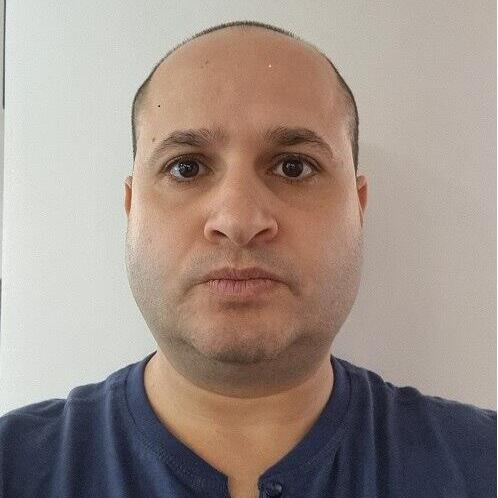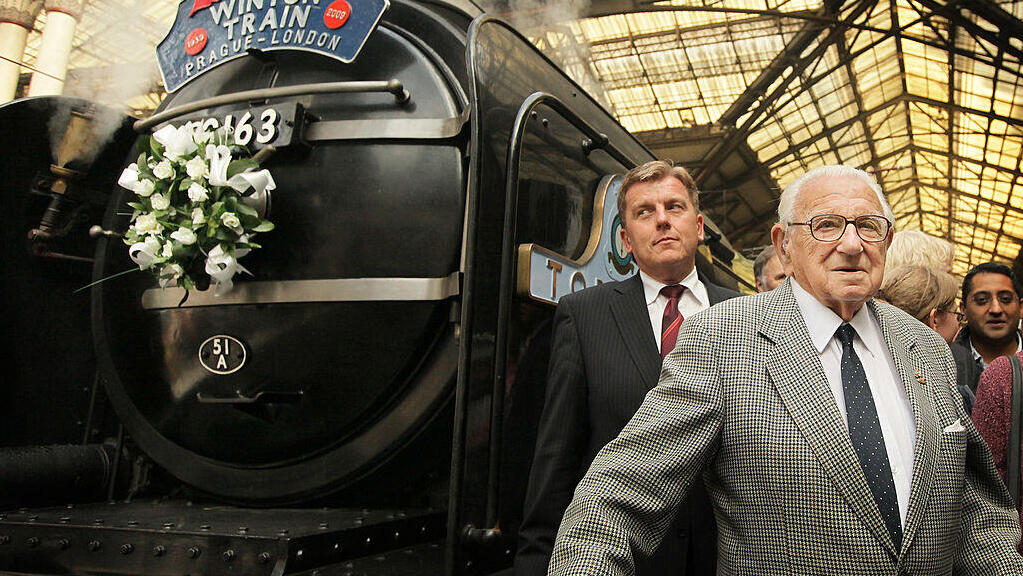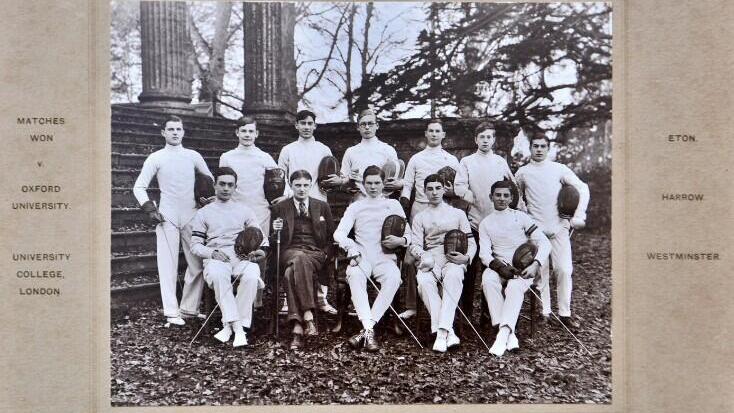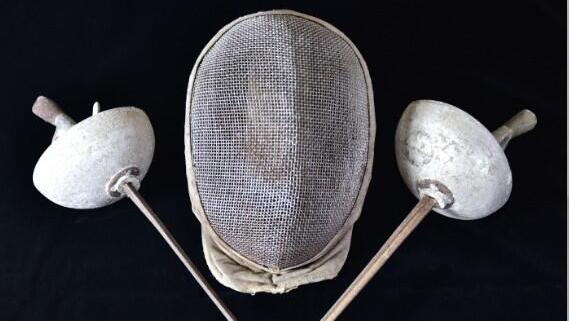Getting your Trinity Audio player ready...
World War II changed the course of Nicholas Winton’s life. Once a promising Olympic-level fencer, Winton instead became known as the “British Schindler” for rescuing hundreds of children — mostly Jewish — from Czechoslovakia on the eve of the Holocaust.
Winton was a banker and stockbroker who worked in Germany and France before entering politics in the UK. In late 1938, he received a request from a fellow Labour Party activist working in Czechoslovakia to come to Prague.
5 View gallery


Nicholas Winton (right) with fencing team
(Photo: The Nicholas Winton Memorial Trust)
He arrived on January 1, 1939, where he met members of the British Committee for Refugees from Czechoslovakia. These volunteers were aiding those fleeing the Sudetenland after its annexation by Nazi Germany — not only Jews but anyone labeled an enemy of the regime.
Shocked by the conditions he saw, Winton stayed to help — mainly focusing on children whose lives were at risk and who were being overlooked by other aid agencies. Within two weeks, he and his colleagues devised a rescue plan: transporting children from Czechoslovakia to the UK. Most of the children turned out to be Jewish.
Back in the UK, Winton worked tirelessly to gain official approval for the operation. He succeeded. The requirements were minimal: a host family in the UK and a £50 deposit per child, to ensure they would return after the crisis. Winton and his team began compiling lists of children and appealing to British families through media outreach.
The first train of children left Prague on March 14, 1939. The very next day, Nazi Germany completed its occupation of Czechoslovakia.
By the time war broke out on September 1, 1939, Winton had organized eight transports, saving a total of 669 children. Their route went through the Netherlands and ended in the UK. Tragically, a ninth train — scheduled to depart on the day the war began — was halted. The 250 children aboard were never seen again. Most of their families had already been deported to Auschwitz.
An Olympic dream cut short
In another life, Nicholas Winton might have made his name in sports. He excelled in fencing, trained with the Oxford University team coach, and specialized in both foil and épée. Even after starting his banking career, he kept training and was named to the UK’s national fencing team in 1938.
Get the Ynetnews app on your smartphone: Google Play: https://bit.ly/4eJ37pE | Apple App Store: https://bit.ly/3ZL7iNv
The team was preparing for the 1940 Olympics, originally set for Tokyo but moved to Helsinki due to the Second Sino-Japanese War. The Games were eventually canceled due to the outbreak of World War II.
Winton served in the Royal Air Force during the war. Though he didn’t return to competitive fencing, he remained involved in the sport alongside his brother Robert, founding a competition together.
An unknown hero revealed
For decades, Winton’s story went largely untold. In The UK and Czechoslovakia, the Czech Kindertransport was forgotten. Winton led a quiet life, known mainly for his work on elderly housing projects. It wasn’t until 1988 — nearly 50 years later — that his story resurfaced.
That year, a British TV show called That’s Life! invited Winton to sit in the audience. He agreed. During the broadcast, he was reunited with some of the children he had saved, now adults. In a follow-up episode, the host asked if anyone in the audience owed their life to Winton or was a descendant of one of the rescued children.
Dozens stood up, one by one. Winton, visibly moved, hadn’t spoken publicly about the operation and would’ve taken the story to his grave if not for his wife discovering the original list of names in their attic and contacting the show’s producers.
A legacy of compassion
Nicholas Winton was knighted in 2003 after pressure from Alf Dubs, a British MP who had been one of the 669 children rescued. Winton’s parents, born to Jewish families (the Wertheims), had immigrated to The UK in the early 20th century. Though the family distanced themselves from religion, Winton’s wartime experiences led him to embrace humanitarianism as a personal mission.
When his youngest son was born with Down syndrome, Winton and his wife refused to institutionalize him — then the common practice — and cared for him at home until his death at age six. The experience prompted Winton to found a charity supporting families with children who have disabilities.
He received widespread recognition later in life, particularly in the UK and the Czech Republic. A film and book were dedicated to his story but perhaps the most poignant tribute stands at Prague’s main train station: a statue of Winton holding a small child, with another standing by his side — the children he helped send to safety.
Winton died in 2015 at age 106. His story is a rare example of early recognition of danger, met with swift and effective action. In another reality, he might have become an Olympic champion. In this one, he became something far greater.







